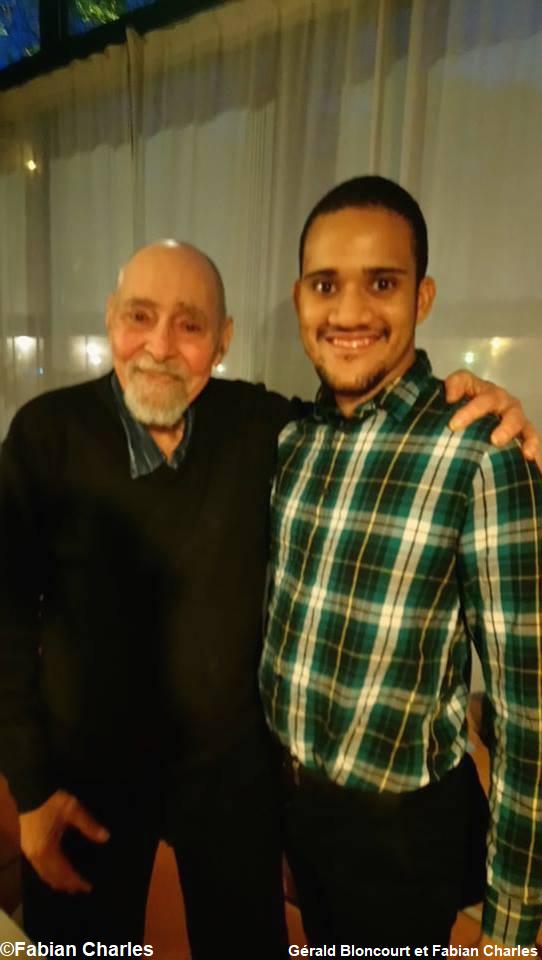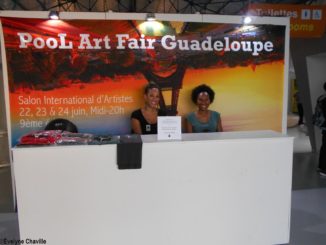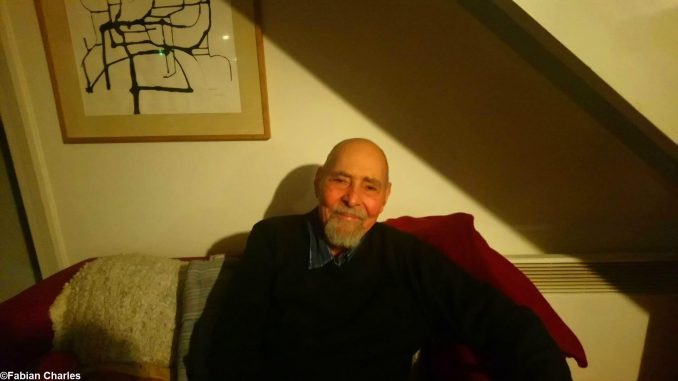
Interview in Paris : Éric Amiens and Fabian Charles
Gérald Bloncourt was born on November 4, 1926 in Bainet, Haiti. As he grew up, he discovered injustice and he militated to try to change the daily lives of Haitian people. In 1946, Bloncourt was 19 years old and he tried with a small group of young men to make, on the island, a Marxist revolution, “Les 5 Glorieuses”. He was arrested and expelled from Haiti then, he arrived in France with the help of Aimé Césaire (Martinican policician and writer) and Marius Moutet (French minister).
At just 91, the photographer, the committed artist and the humanist is tireless. With passion, he gives lectures and takes part in exhibitions. His objective : to promote his artistic activities but also to talk about this country that gave him everything, Haiti.
For KARICULTURE.NET, Gérald Bloncourt agreed to give to journalists Éric Amiens from Guadeloupe and Fabian Charles from Haiti, a very long interview it his home in Paris.
Here is the first part of this exceptional meeting.
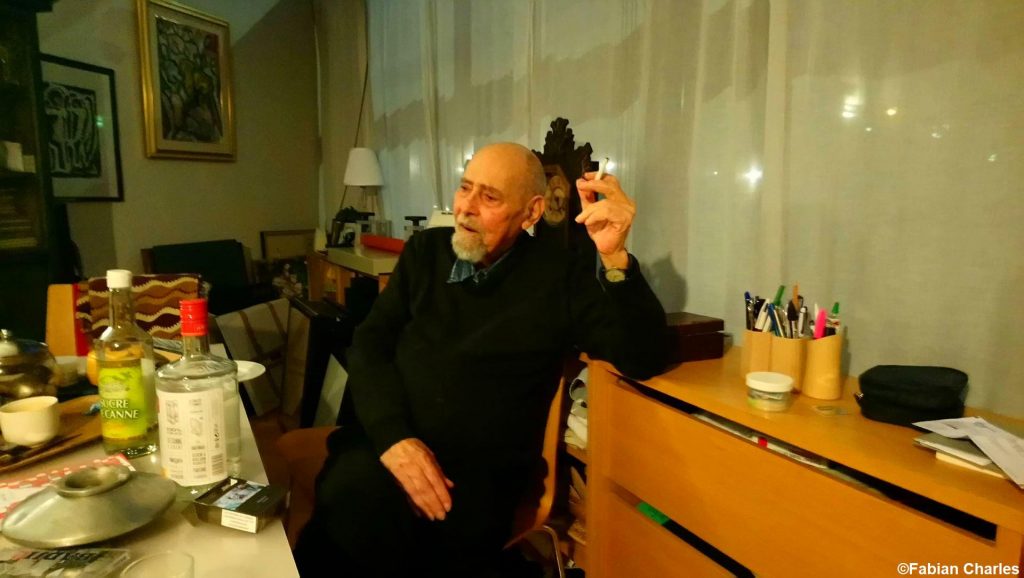
KARICULTURE.NET : Your father was Guadeloupean, your mother was French and you were born in Haiti in 1926, it is not common at that time ?
Gérald Bloncourt : My father came to France to take part in the 1914-18 war, he met my mother. After, he came to Haiti to be with one of his uncles who lived there. I was born Haitian. I received all that Haiti has as wealth.
I am what the racists defined as a quadroon. My great-grandmother was a black woman who came from Africa, I think she was a freed slave in Guadeloupe. We kept the Guadeloupean traditions, I continue making my punch, this tradition that we passed on around us. I still have relatives in Guadeloupe. There are Bloncourt everywhere, I also have a namesake. Thanks to the social networks, I found a lot of cousins in Puerto Rico, in the United States (New York), in Canada. We are in contact and we meet.
KARICULTURE.NET : Do you consider yourself a Caribbean ?
Gérald Bloncourt : Definitely, I am a staunch Caribbean ! Moreover, I was for a union of the Caribbean. In 1946, when I arrived in Martinique, I militated in favour of this Caribbean union with Édouard Glissant and many other people, we even make meetings on that subject.
KARICULTURE.NET : Is this Caribbean union that you wanted still possible?
Gérald Bloncourt : Today, according to the way the societies are constituted, I think it is illusory but what is important, is to keep in touch and these relationships exist. The Haitian intellectuals know all the Martinican and Guadeloupean writers and vice versa. There are discussions, we are brothers. We have the same roots. In Haiti, there are several families of Guadeloupean origin, I remember that with one of the Bajeux sons, we thought about Guadeloupe, we were very young and we dreamt of setting up an expedition to go to make the revolution in Guadeloupe and to release the country from the French colonialism.
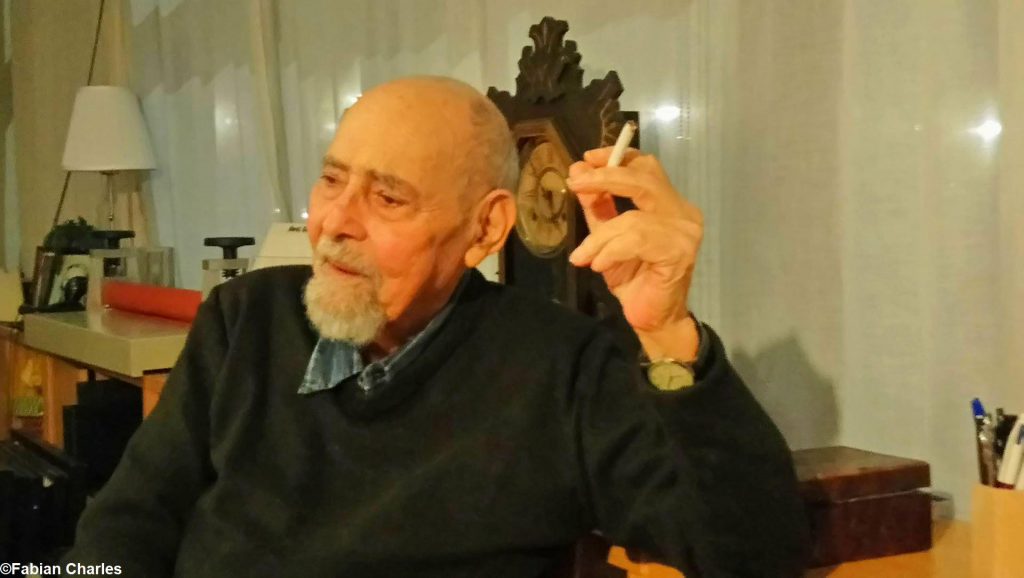
KARICULTURE.NET : What do you think about “négritude” and “créolité” (Creole identity) ?
Gérald Bloncourt : I consider myself a Creole. Negritude, why not ? Because I have also African blood in my veins. I am a mixture. When we created the newspaper La Ruche, there were Black people, Mulattos, Quadroons, White people, we were very varied, there was no distinction of races. We were people involved in the class struggle. I was with the masses.
KARICULTURE.NET : You were a communist party militant, is Marxism pertinent today?
Gérald Bloncourt : I did not join Marxism as a religion. I knew communism thanks to my cousin, Édouard Bloncourt, who was a friend of Jacques Romain, this great Haitian writer, the first who brought in Marxist ideas to Haiti. Jacques Roumain founded the first communist party in Haiti. It was a small group of intellectuals. I was initiated by my cousin who gave me The Manifesto by Karl Marx and Frederick Engels that I devoured. I consider that Marx is a great thinker, un great philosopher. He wrote important things to analyze and understand the world. He established a number of principles. But unfortunately, these ideas were badly used and often distorted by those who came to power. The apparatchiks broke the ideas of communism by committing, for example, horrible deportations. The values were erased. All that is not the Communism of The Manifesto. I am a communist, the others were not. I am an internationalist in my way of looking at things. Today, faced with excessive neoliberalism, the political, sociological and economic thought based on Karl Marx’s ideas, in my opinion, is still valid, just with the exploitation of man by man. It must be used to build a different society.
KARICULTURE.NET : Let’s talk about your fight against Jean-Claude Duvalier, the former President for life in Haiti from 1971 until his fall in 1986. In 1986, you set up the “Comité pour juger Duvalier” (Committee to try Duvalier), the French law dismissed your complaints. The former dictator came back to Haiti en January 2011, after twenty-five years of exile in France then, he died on October 4, 2014 at the age of 63. However, you continue your fight to try him…
Gérald Bloncourt : Even posthumously, we continue the fight so that Jean-Claude Duvalier could be tried because his dictatorship harmed our country. Many people died in prison, were murdered, tortured and thousands of “boat people” were lost at sea. People continue suffering from serious acts of violence that marked the Duvalier’s reign. These are crimes against humanity.
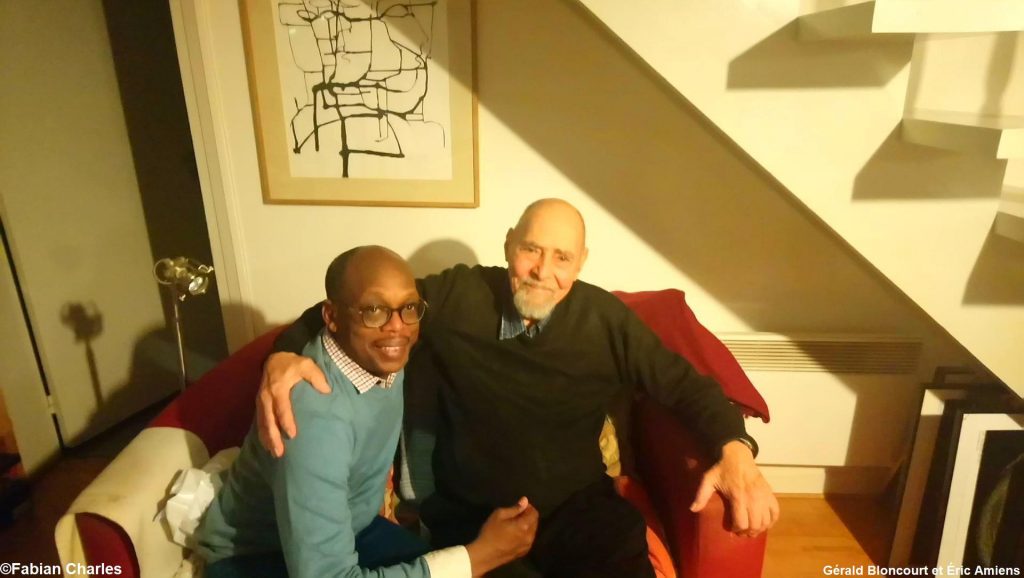
KARICULTURE.NET : Imigration, exile, you know, you took photos of the Portuguese exile from 1954 to 1974, from the Pyrenees to the Parisian shantytowns… What is your reaction about the present situation of African migrants reduced to slavery in Libya?
Gérald Bloncourt : It’s scandalous! It’s a scandal in full view of the democratic West, a consequence of the vestiges of slavery. Disdainful and cynical policies of the so-called “civilized” countries to which France and the United States of America belong and theuy are in the first rank. This Libyan example is not an isolated case. Throughout the world, there are many forms of these iniquitous practices. It’s urgent to intervene and disband these murderer rings. We must act without wasting time.
KARICULTURE.NET : Is transmission of knowledge important for you ?
Gérald Bloncourt : I think that we lived events, we must pass on them. It is what I do through my exhibitions, my lectures, my books so that young people can analyze, understand and try to change this society which is deeply unjust. Yes, it’s the turn of young people to play their role, they have the future into their own hands.
